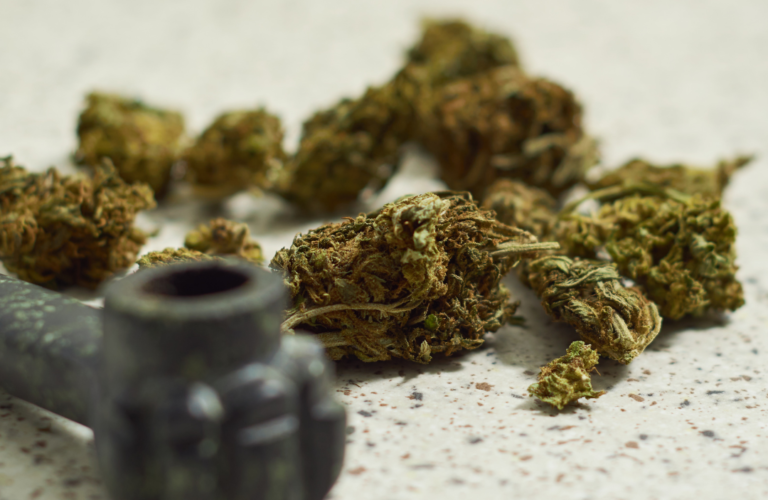Are you worried that you or someone close to you may be struggling with marijuana addiction? It’s a common concern, as more and more people are using this substance for both medicinal and recreational purposes. However, just like any other drug, marijuana can lead to addiction if not used responsibly.
In this blog post, we’ll dive into the symptoms of marijuana addiction and what you should know about getting help for yourself or your loved ones. So buckle up and let’s explore this important topic together.
What Are the Symptoms of Marijuana Addiction?
Marijuana addiction is a significant concern, as it can result in various adverse consequences. Therefore, if you or someone you know is grappling with a marijuana addiction, it becomes crucial to recognize the potential symptoms.
While marijuana addiction symptoms may differ from person to person, there are some common signs that suggest an individual might be addicted to marijuana. These include:
- Withdrawal symptoms when not using marijuana
- Withdrawal symptoms when not using marijuana
- Using marijuana despite negative consequences
- Spending a lot of time using or recovering from the use of marijuana
- Neglecting important obligations in favor of using marijuana
- Experiencing relationship problems because of marijuana use
If you or someone you know is exhibiting these symptoms, it becomes essential to seek professional help, likely at a rehab center like these Paramount Recovery Centers. Given that addiction is a severe problem, treatment from qualified professionals is necessary.
How Does Marijuana Addiction Develop?
Marijuana addiction can develop in anyone who regularly uses the drug. However, certain factors may make a person more susceptible to developing an addiction. These include:
- A history of mental illness. People with disorders such as anxiety, depression, or schizophrenia are more likely to self-medicate with marijuana and become addicted.
- A history of trauma or abuse. Those who have experienced traumatic events in their lives may turn to marijuana as a way to cope with their pain and numb their emotions.
- Peer pressure. If your friends or peers are using marijuana regularly, you may be more likely to try it and potentially become addicted.
Who is at Risk for Developing Marijuana Addiction?
Marijuana addiction is a real and serious problem. According to the National Institute on Drug Abuse, about 1 in 10 people who use marijuana will become addicted. People who start using marijuana before the age of 18 are four to seven times more likely to develop an addiction than adults.
People who have a family history of addiction or mental illness are also at increased risk for developing marijuana addiction. Additionally, people who use marijuana regularly are more likely to develop an addiction than those who only use it occasionally.
Several factors can affect someone’s risk of developing marijuana addiction. If you or someone you know is struggling with marijuana addiction, please seek professional help, perhaps by enrolling in a reputed rehab center akin to The Recovery Village Indianapolis (or something similar elsewhere).
What Are the Consequences of Marijuana Addiction?
Marijuana addiction is a serious problem that can lead to several negative consequences. Some of the most common consequences of marijuana addiction include:
- Impaired memory and cognition
- Impaired memory and cognition
- Decreased motivation
- Increased anxiety and paranoia
- Psychotic symptoms (in severe cases)
If you or someone you know is struggling with marijuana addiction, it’s important to seek professional help as soon as possible. With treatment, it is possible to overcome addiction and live a healthy, fulfilling life.
How is Marijuana Addiction Treated?
Marijuana addiction can have serious repercussions on a person’s life, but there are treatment options available to help individuals break free from addiction and lead healthy, drug-free lives. Rehab centers like Heal Treatment Centers tend to offer comprehensive treatment programs designed to support individuals in overcoming their addiction to marijuana. Through personalized treatment plans, therapy, and support services, individuals can take the necessary steps towards recovery and reclaim control over their lives.
One of the most effective treatments for marijuana addiction is cognitive-behavioural therapy (CBT). CBT is a type of therapy that helps people identify and change the thoughts and behaviours that contribute to their addiction. This type of therapy is particularly effective in treating addictions to drugs like marijuana.
Other effective treatments for marijuana addiction include contingency management and Motivational Enhancement Therapy (MET). Contingency management is a type of treatment that uses rewards to encourage patients to stay in treatment and abstain from using drugs. MET is a type of therapy that helps patients increase their motivation to change their behavior and achieve their treatment goals.
If you or someone you know is struggling with marijuana addiction, there are many treatment options available that can help. Treatment should be tailored to the individual, taking into account the severity of the addiction, any underlying mental health issues, and other factors. If you are unsure where to start, talk to your doctor or a mental health professional about what options might be right for you or your loved one.
As you can see, marijuana addiction is a real and serious condition that should be taken seriously. The earlier it is detected and addressed, the better the chances of full recovery.
If you or someone else you know has been exhibiting signs of marijuana addiction, seek out help from a mental health professional as soon as possible for an accurate diagnosis so that an appropriate treatment plan can be put in place.
?Do not let the fear of stigma keep you from getting help; it’s never too late to get your life back on track!




